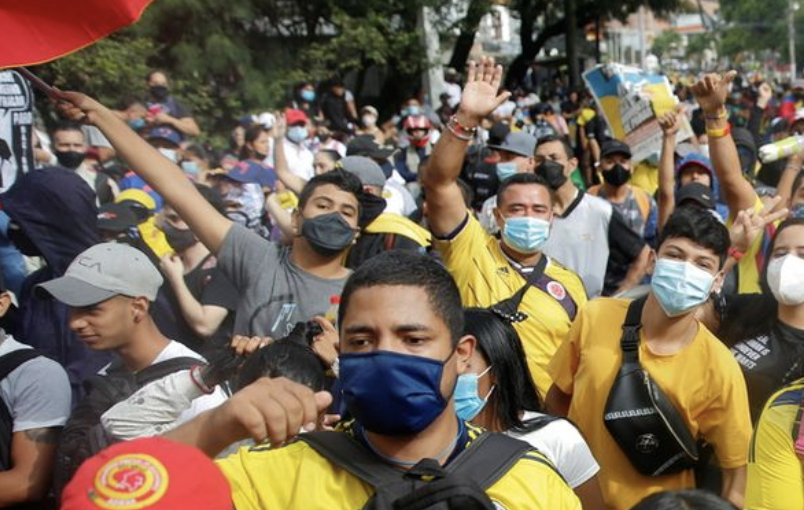An opinion editorial by ICJ’s Commissioner, Rodrigo Uprimny. He presents seven measures to overcome the serious crisis Colombia is facing. He argues that authorities must make efforts to de-escalate violence and, in turn, escalate the protection of human rights.
The current crisis is severe. In a few days, more than 30 people have died, several of them from police bullets. There are also numerous disappeared persons. And there have been acts of extreme criminal vandalism, such as the attempt to incinerate several police officers inside a police station.
Apart from the severity, the crisis is complex. It is a result of a combination of old and new tensions, which have been accumulated and exploded due to a tax-reform bill proposal. But despite the complexity and severity, which make the crisis challenging to resolve, or perhaps precisely because of that, it is necessary to take measures to prevent the situation from getting worse.
The Government and political and social leaders must make efforts to deescalate violence. This requires escalating human rights, putting them at the centre of crisis management. So I propose seven measures oriented in that direction.
First, the president and, in general, all high-level government official must unequivocally condemn abuses by law enforcement officials. They must state that these acts will not be tolerated and will be investigated and punished. Unfortunately, those statements have not occurred.
Second, the organizers of the protests and those of us who share the protests must condemn not only the police abuses but also the acts of violence in the protests.
Third, the Office of the Ombudsperson and the Office of the Inspector General must remember that they are independent from the Government. They must take their independent role seriously. They must fulfil their constitutional function of defending human rights and denouncing abuses committed by authorities.
Unfortunately, despite the commitment of their officials, the interventions of these organizations have been weak due to the closeness of the Ombudsman and the Inspector General to the Government.
Fourth, authorities must identify and punish those who commit vandalism in the protests, especially against other people. At the same time, they must guarantee the right to peaceful protest, without stigmatizing the protest, and avoiding any excess in the use of force.
Thus, fifth, the Government and law enforcement officials must strictly comply with the ruling of the Supreme Court handed down in September 2020. In the ruling, the Supreme Court protected the right to peaceful protest and ordered authorities to refrain from stigmatizing the social protest and to adopt protocols to avoid excesses in the use of force.
Nevertheless, the ruling has not been applied in the ongoing protests. That is why several human rights organizations, including Dejusticia, filed a formal petition (incidente de desacato) against the Government.
Sixth, the Office of the General Prosecutor must investigate all violence committed during these protests, including those committed by the police, because if the crime is clearly contrary to the constitutional function of the law enforcement agencies, the case must go to the ordinary jurisdiction, in accordance with constitutional jurisprudence and with article 3 of Law 1407.
Seventh, the support of international human rights organizations should be sought. Consequentially, instead of obstructing the verification work of the Office in Colombia of the United Nations High Commissioner for Human Rights, as the Deputy Foreign Minister tried to do, the Government should facilitate the presence of other international bodies, such as the Inter-American Commission on Human Rights.
These measures and others of a similar nature, which put human rights at the centre of the crisis management, would help de-escalate the ongoing violence. At the same time, these measures would facilitate the necessary conversations to reach genuine national agreements on the ways to confront the underlying problems and tensions that fuelled the protests.
Notes:
Commissioner Uprimny is also Researcher at Dejusticia and member of the UN Committee on Economic, Social and Cultural Rights.
This op-ed was first published in Spanish in El Espectador on May 9, 2021

